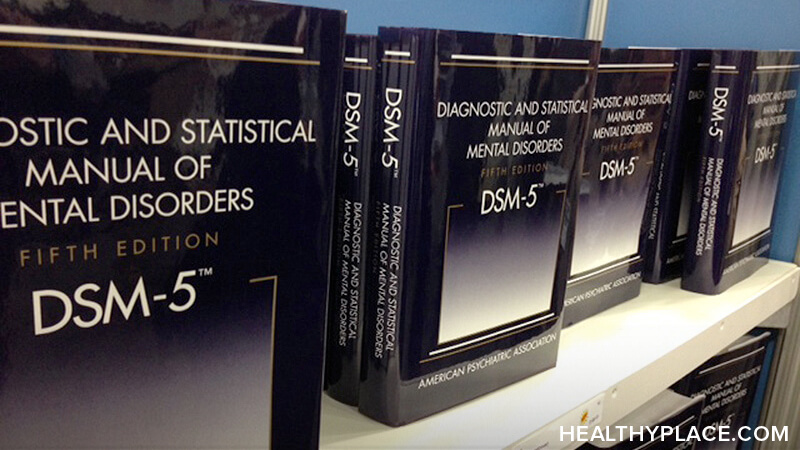The DSM-5: The Encyclopedia of Mental Disorders

The DSM-5, the Diagnostic and Statistical Manual of Mental Disorders, Fifth Edition is a tome on mental illness published by the American Psychiatric Association (APA). It has almost unanimous acceptance as the authority on mental health disorders. The DSM-5 contains broad categories of mental illness and, within those categories, all known mental disorders and their symptoms (List of Mental Illnesses). Mental health doctors and other professionals use the DSM-5 to help people pinpoint and understand their mental health problems so that they may overcome them. The information contained in the publication is so thorough and extensive that the DSM-5 is sometimes thought of as the encyclopedia of mental disorders.
What are Mental Disorders?
Everyone experiences mental health distress occasionally. Mental health counseling benefits people of all ages and backgrounds as they work to manage stress and other problems and achieve emotional health and wellbeing.
Mental health disorders, also referred to as mental illness, go beyond mental health distress. Disorders involve life-limiting dysfunction. Further, they are enduring; they don't wax and wane like less-impactful mental health challenges. Disorders are also inflexible and rigid.
The DSM-5 distinguishes mental disorders from mental health distress in other ways, too. While both disorder and distress affect the whole person (thoughts, feelings, and behaviors), a mental health disorder affects them to such a degree that functioning is impaired in many areas of life.
Different Mental Disorders in the DSM-5
This encyclopedia of mental disorders groups the different mental disorders into five distinct categories. To facilitate better understanding, disorders are placed into one of these five groups:
- neurodevelopmental disorders (brain/nervous system disorders beginning early in development)
- internalizing disorders (illnesses whose symptoms are turned inward within the person)
- externalizing disorders (illnesses whose symptoms are expressed outwardly to the world)
- neurocognitive disorders (brain diseases that lead to decline in cognitive functioning and processing)
- other disorders (illnesses that do cause disruption and dysfunction but don't quite meet the full criteria of others in its chapter, such as a dissociative disorder or a trauma-induced disorder)
The DSM-5 contains 20 disorder chapters and nearly 300 mental illnesses. Each and every one of them fits into one of the above five categories. When someone knows exactly what he or she is experiencing and where it fits compared to other mental disorders, he or she is better equipped to face it and learn to thrive in spite of it.
Mental Disorders Test
So how does one know exactly what he or she is experiencing? Mental disorders tests are tools that lead to understanding and diagnosis.
Formal assessment and mental disorder testing is typically done by a professional. Even before seeing a doctor or counselor, though, someone can take various mental health assessment and screening tests. These self-checks are tools to help people narrow down the problems they're experiencing and lead to an efficient conversation with mental healthcare professionals.
Other, similar but less formal devices are also available to help people begin to understand what they're living with. Mental health quizzes and tests, while not substitutes for diagnosis, do increase understanding of both self and disorder. Many such mental health quizzes and tests can be found on HealthyPlace.com in the following categories:
- Abuse
- Addictions
- ADHD
- Anxiety/Panic
- Bipolar disorder
- Depression
- Eating disorders
- Parenting Test - Compassion Fatigue
- Personality disorders (Borderline Personality Disorder Test, Histrionic Personality Disorder Test, Narcissistic Personality Inventory Test, Psychopath Test, Sociopath Test)
- Sleep disorders
- Thought disorders (Schizophrenia Screening Test)
Visit Psychological Tests to take them.
DSM-5: Good Encyclopedia of Mental Disorders
One of the criticisms of the DSM-5 is that it serves to label people, and when people are labeled, they are misunderstood and stigmatized. Stigma is an unfortunate problem in society, and it does indeed come from a lack of understanding and empathy. However, when used properly, the DSM-5 is designed to be good, a positive tool.
The purpose of a mental health diagnosis is to provide a language and a concept to mental health disorders. The DSM-5 provides a description of what is going on so mental health professionals and clients can communicate about it. When people know the "what," they can reap the benefits of benefits of mental health therapy and live life with purpose and positivity. The DSM-5 is a manual that makes the process possible.
APA Reference
Peterson, T.
(2019, October 23). The DSM-5: The Encyclopedia of Mental Disorders, HealthyPlace. Retrieved
on 2026, February 16 from https://www.healthyplace.com/other-info/mental-illness-overview/the-dsm-5-the-encyclopedia-of-mental-disorders



